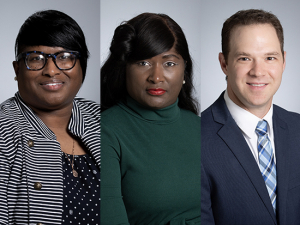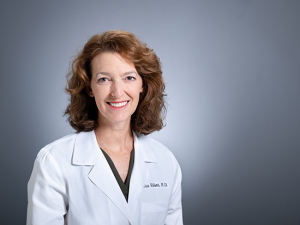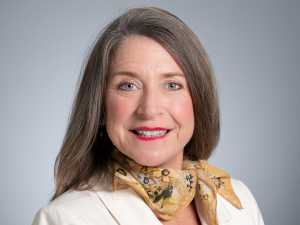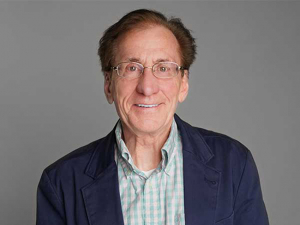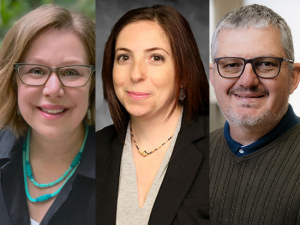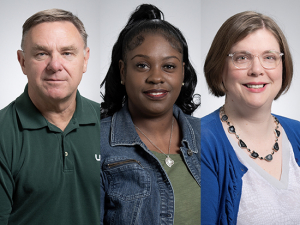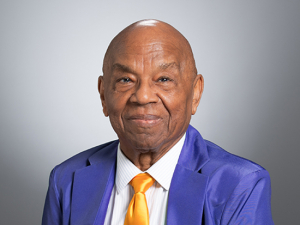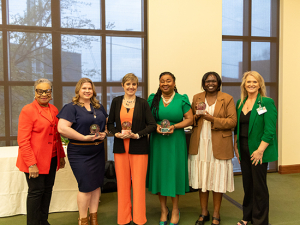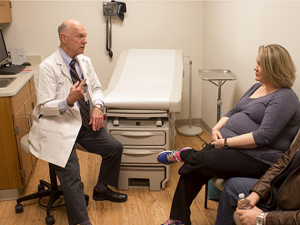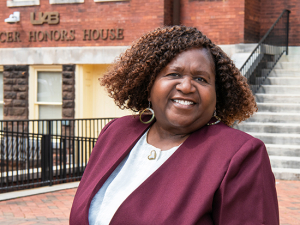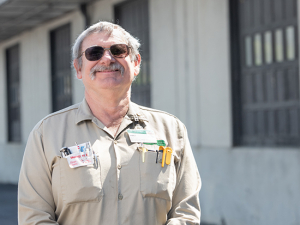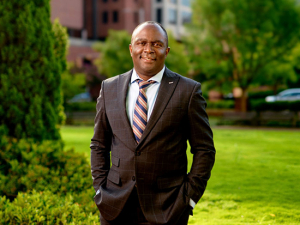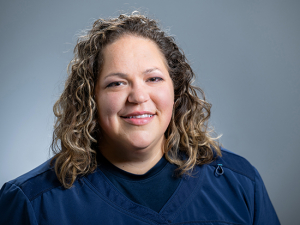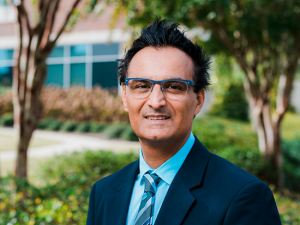Three individuals and one student organization were honored with the 2021 President’s Diversity Champion Award during a virtual ceremony Feb. 18.
The annual award, sponsored by the Office of the President and the Office of Diversity, Equity and Inclusion, recognizes employees, students and organizations that have helped create a more culturally diverse, inclusive university community through their achievements. Nominations are solicited from the UAB community for all categories, and awards are given in several categories for projects or activities that best reflect the implementation of unit and/or campus diversity goals.
Congratulations to the 2021 recipients:
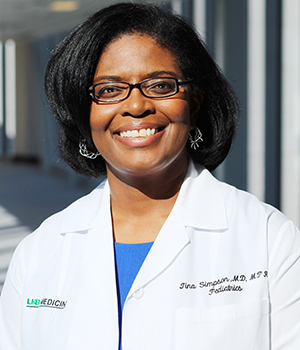 Tina Simpson, M.D.Tina Simpson, M.D.
Tina Simpson, M.D.Tina Simpson, M.D.
Faculty, School of Medicine
Tina Simpson, the departmental diversity liaison for the Office for Diversity and Inclusion in the School of Medicine, has helped lead several diversity education initiatives. They include the 2017 Maternal and Child Health Bureau-funded Diversity and Health Equity Peer Learning Collaborative, which was designed to help MCH training programs across the country more effectively address diversity and health equity. Simpson, who is a member of the Society for Adolescent Health and Medicine Diversity Committee, co-authored a 2020 position statement regarding immigrant youth in Immigration and Customs Enforcement detention centers and a manuscript calling for the use of anti-racism approaches to address health inequities.
She also has been recognized by the City of Birmingham as a “Hidden Hero” for her involvement with the Mayor’s Office Division of Youth Services, and BHAM Black Pride presented Simpson with its inaugural Invisible Warrior Award, which it named for Simpson to recognize her long services as a physician caring for children, adolescents and young adults with HIV.
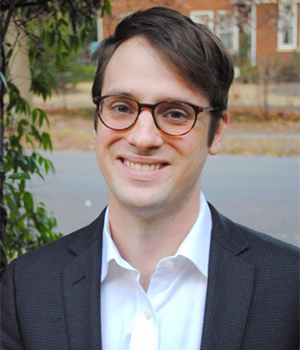 Jordan Perchik, M.D.Jordan Perchik, M.D.
Jordan Perchik, M.D.Jordan Perchik, M.D.
Staff, School of Medicine
Jordan Perchik, who began his diagnostic radiology residency in July 2018, joined the Near-Peer student-resident mentorship program, the Radiology Diversity and Inclusion Committee and the international radiology outreach organization RadAID; now he is a resident leader in these organizations. Dr. Perchik has mentored medical students and fellow residents of diverse backgrounds and experiences, and he has connected them with mentors, facilitated their pursuit of research and worked to address health disparities in his field. His efforts have improved inclusion and representation of women and underrepresented minorities in the residency program and contributed to overall advances in resident wellness.
Perchik and a supportive team in the UAB Department of Radiology recently published a systematic review of transgender-related research in the radiology literature. He also has developed sessions in transgender health literacy for the resident education curriculum and advocates for equitable delivery of health care for transgender and gender-diverse individuals.
 Nia TaylorNia Taylor
Nia TaylorNia Taylor
Graduate/Professional Student, School of Dentistry
Nia Taylor, a third-year dental student at UAB, is simultaneously pursuing a doctorate in medical dentistry and master’s degree in business administration and expects to graduate in May 2022. Taylor, who earned a bachelors’ degree from the University of Pennsylvania, also graduated UAB with a master’s degree in biomedical and health sciences in 2018. She is actively engaged in student activities in the School of Dentistry as treasurer of the Student Research Group, program director of the Dental Business Club, a UAB SOD Ambassador for the 2020-21 admissions cycle and president of the Student National Dental Association. She also has participated as a mentor to undergraduate students during the past three years in UAB’s Summer Health Professions Education Program.
 MSHA DEI Student CouncilMSHA DEI Student Council
MSHA DEI Student CouncilMSHA DEI Student Council
Student organization, School of Health Professions
The MSHA DEI Student Council, a permanent committee of the MSHA Student Organization, was established in summer 2020 to prioritize diversity, equity and inclusion as fundamental pillars of the Master of Science in Health Administration program. When students were navigating varying emotional predicaments — from the COVID-19 pandemic to a media shower of social injustices across the country, the council provided students a space to speak candidly, share lived experiences and ask questions that may have been considered taboo.
Using collaboration as its foundation, the council is helping faculty and staff integrate DEI into all aspects of the MSHA program, including the curriculum, admission process and guest lectures, and it calls attention to the diverse perspectives of current students and alumni.
